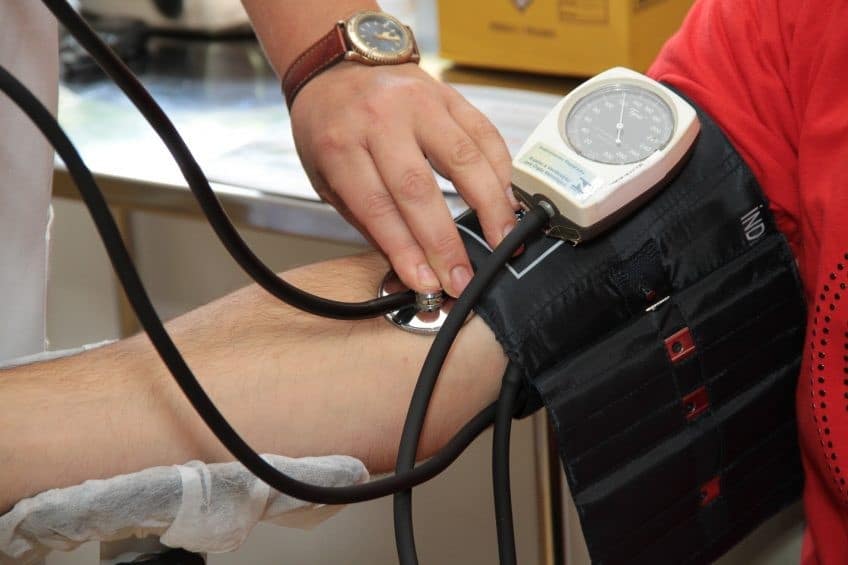Everything You Need To Know About Cases Finding Florida’s Statutory Medical Malpractice Damage Caps Unconstitutional
Medical MalpracticeHistory Of Florida’s Medical Malpractice Damage Caps
Florida initially passed its statute capping noneconomic damages in medical malpractice cases in 2003 during the so-called “medical malpractice crisis.” Since that time, medical malpractice has become less of a political hot button issue in Florida and fears of the “crisis” have eased. Regardless, the courts have been dealing with these issues passed by the Florida legislature and have found the caps on noneconomic damages unconstitutional in the cases below.
I frequently get asked about whether the malpractice damage caps in Florida are still enforceable because there is a statute still on the books but yet finding all of the cases that you need to evaluate the issue are not always easy to find. As a result, this page is all about the cases that you will need to beat any affirmative defenses that a doctor or hospital raises to your medical malpractice claim based on the caps.
Where To Find The Statute
The statute on noneconomic damage caps is section 766.118, Fla. Stat.
The Florida Supreme Court Has Spoken That Noneconomic Damage Caps Are Unconstitutional
The first case to strike down the damage cap statute was Estate of McCall v. U.S., 134 So.3d 894 (Fla. 2014).
This case was a wrongful death case that originated as a federal tort claims act case and worked its way up to the Florida Supreme Court. The question in the case eventually became the following as quoted from the opinion itself:
DOES THE STATUTORY CAP ON WRONGFUL DEATH NONECONOMIC DAMAGES, FLA. STAT. § 766.118, VIOLATE THE RIGHT TO EQUAL PROTECTION UNDER ARTICLE I, SECTION 2 OF THE FLORIDA CONSTITUTION?
The answer was equally quote-worthy:
We conclude that section 766.118 violates the Equal Protection Clause of the Florida Constitution under the rational basis test. The statutory cap on wrongful death noneconomic damages fails because it imposes unfair and illogical burdens on injured parties when an act of medical negligence gives rise to multiple claimants. In such circumstances, medical malpractice claimants do not receive the same rights to full compensation because of arbitrarily diminished compensation for legally cognizable claims. Further, the statutory cap on wrongful death noneconomic damages does not bear a rational relationship to the stated purpose that the cap is purported to address, the alleged medical malpractice insurance crisis in Florida.
However, Estate of McCall was limited to wrongful death claims and left open whether the idea that caps are unconstitutional in other types of cases for another case to decide.
Florida Supreme Court Decides Kalitan In 2017
In North Broward Hospital District v. Susan Kalitan, SC15–1858 (June 8, 2017), the Florida Supreme Court reached the following conclusion:
We conclude that the caps on noneconomic damages in sections 766.118(2) and (3) arbitrarily reduce damage awards for plaintiffs who suffer the most drastic injuries. We further conclude that because there is no evidence of a continuing medical malpractice insurance crisis justifying the arbitrary and invidious discrimination between medical malpractice victims, there is no rational relationship between the personal injury noneconomic damage caps in section 766.118 and alleviating this purported crisis. Therefore, we hold that the caps on personal injury noneconomic damages provided in section 766.118 violate the Equal Protection Clause of the Florida Constitution.
For an in depth analysis of Kalitan and how the caps operate, read my analysis here.
Prior to the Florida Supreme Court’s decision in Kalitan, the Second DCA agreed with other courts finding personal injury claims could not be constitutionally capped in Port Charlotte HMA LLC d/b/a Peace River Medical Center v. Iala Suarez. I have specifically written about the Suarez case in depth here.
Damage Caps For Florida Medicaid Patients Is Unconstitutional
The politics of hate in Florida continued long after the 2003 medical malpractice amendments. The Florida legislature extended sovereign immunity caps of $200,000 per person and $300,000 aggregate to medical malpractice claims brought by Medicaid recipients in 2011 with the addition of section 766.118(6), Fla. Stat.
Dixon v. U.S. was another federal tort claims act case where a courageous federal judge wrote a judicial opinion rather than just entering an order and stated:
[A]lthough no Florida court has directly addressed the cap for Medicaid recipients under § 766.118(6), Florida courts have broadly applied McCall to hold that the statutory caps in § 766.118 are unconstitutional with respect to personal injury actions. The Court concludes that McCall and its progeny apply equally to subsection 6 (although not expressly directed to that subsection) because it, like subsections 1, 2 and 3, limits damages “arbitrarily [which] diminishes compensation for legally cognizable claims,” McCall, 134 So. 3d at 901, and denies plaintiffs equal protection. For the same reasons already set forth in McCall and its progeny, the Court determines that Florida courts would hold this subsection unconstitutional as well. Therefore, the statutory caps do not apply.
I have specifically written about the Dixon case and the ruling that such damage caps for medicaid patients is no longer allowed.
No Argument Remains That Damage Caps Are Constitutional
These cases collectively eliminate any argument that damages caps are appropriate in any Florida medical malpractice case. The only exception is for cases (see Poole v. DeFranko decided December 2019) in which voluntary binding arbitration was offered by a defendant in which the defendant offering arbitration is required to admit liability (and caps after refusing to accept arbitration). Aside from the quid pro quo of an admission of liability, it remains to be seen whether those caps are meet the “equal protection” standard set by the Florida Constitution, Article 1, Section 2 and that “all natural persons, female and male alike, are equal before the law…”
In July 2018, a Circuit Judge in Miami-Dade County ruled that Florida’s medical malpractice arbitration caps were unconstitutional. An appeal is expected on this issue.
Get Help With Your Florida Malpractice Case
Medical malpractice cases in Florida are complicated because of the law even when there is a clear medical mistake. Even the best of attorneys often need to research issues encountered on these cases. If you would like help with your case, then you should contact a Lakeland medical malpractice attorney to discuss what you can do. We can tell you whether you have a good malpractice case.


